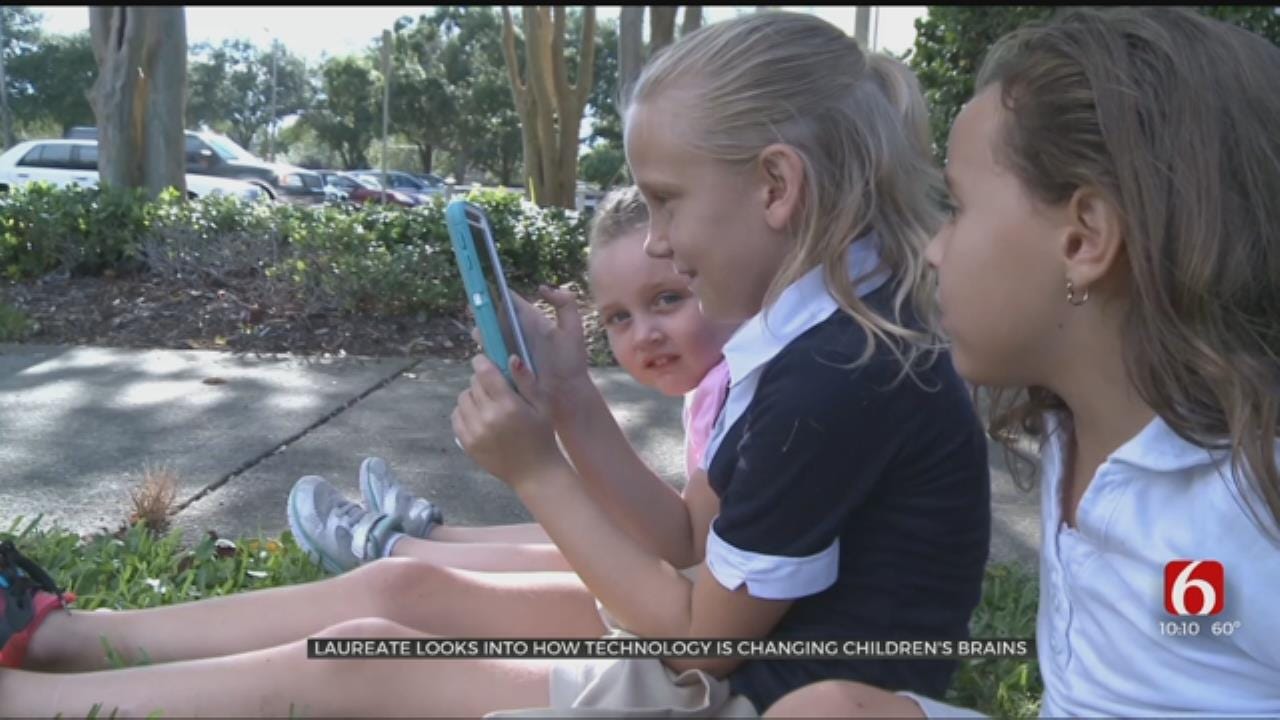Tulsa Study Looks At Impact Of Screen Time On Kids' Brains
Researchers will follow the kids for 10 years, tracking everything from the effects of drug and alcohol use, to the hot topic of the day, screen time.Thursday, April 25th 2019, 10:49 pm
12-Year-Old Maverick Sanstra loves playing outside, basketball and Boy Scouts, which makes him something of a rarity among his friends.
"I'm outside more than most people. I adventure a lot," Maverick says. "I like to go hike and stuff like that. It's better cause my mind is more open to the world."
Just how much different Maverick's mind might be is a $300 million question. He's one of almost 12,000 children taking part in the biggest study of adolescent brain development ever attempted.
It's being run by the National Institutes for Health at 21 locations across the country, including the Laureate Brain Institute in Tulsa.
"This is the first device generation," says Tulsa program investigator Florence Breslin. "They were all born within a year or two of the release of the iPhone."
Researchers will follow the kids for 10 years, tracking everything from the effects of drug and alcohol use, to the hot topic of the day, screen time.
Breslin notes, "A lot of them - their birth, their first time walking, was announced on Facebook."
American teens now spend an average of 4.5 hours a day on their phones and the truth is, no one knows what all that technology may or may not be doing to their developing brains.
"We're in an ongoing generational experiment, and it's not just in the U.S. This is a worldwide experiment, and we can't keep up with it," Breslin says.
The ABCD study began enrolling 9- and 10-year-olds in 2016. The first wave of information was released at the end of last year.
"We're seeing differences in brains related to screen time," Breslin says. "Overall, a lot of screen time can show that the brain is maturing a little bit faster."
Breslin says they have seen the most changes in the cortex of the brain in kids with lots of screen time. That is the outermost layer of the brain that processes information from the five senses.
"Maturation is normal, but this is just a little bit earlier than their non-screen using peers," says Breslin.
While that sounds alarming, researchers say that for most kids in the study, there don't seem to be any negative consequences so far. In fact, kids with lots of social network connections are thriving, but there is an exception.
"Extensive gaming and video activity. Those kids, that's where we see more kids with problems," says Laureate director Martin Paulus.
He reports the problems were most evident in children who are already at risk from issues such as ADHD. For them, more than four hours a day of videos and gaming can spell trouble.
"When they say it's like a drug and it's addictive, I mean he'll have withdrawals," says mom Brandi Burke.
She says electronics are a struggle she sees every day in her 12-year-old son Dylan.
"He broke through my bedroom door to be able to get to his electronics," says Burke.
She hopes being part of this study will help provide answers in the coming years for her family and thousands of others around the country who are also struggling. One thing is already certain, these devices are changing our world - and there is no going back.
More Like This
April 25th, 2019
January 2nd, 2025
September 29th, 2024
September 17th, 2024
Top Headlines
January 15th, 2025
January 14th, 2025
January 14th, 2025
January 14th, 2025










